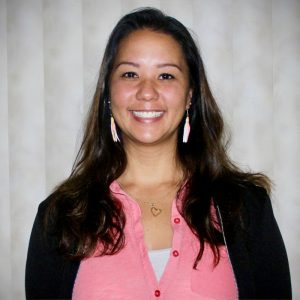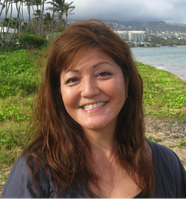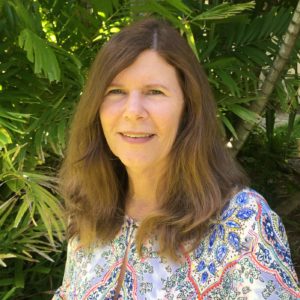MUSE provides individualized instructional mentoring to unlicensed Hawai‘i special education teachers enrolled in a special education teacher preparation program at the University of Hawai‘i at Mānoa. MUSE mentors share their wealth of knowledge and experience by supporting beginning special education classroom teachers, promoting student achievement and the teaching profession, and positively impacting teacher retention rates in Hawai‘i.
To be eligible to receive a MUSE mentor, candidates must be:
- Enrolled in a UH Mānoa Special Education Teacher Preparation Program
- Employed as a Hawaii DOE PreK-12 emergency-hire special education teacher
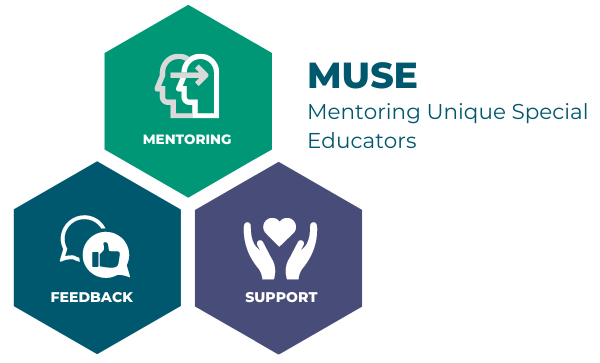
What is it like to be in the MUSE program?
Hear about Leina‘ala Kealoha’s experience with the MUSE mentoring program and read profiles from past participants:
Meet our MUSE mentors
MUSE mentors are a team of highly skilled, veteran special education teacher who have a broad range of classroom and teaching experience. All mentors possess a Master’s Degree and have: (a) extensive teaching experience in Hawai‘i public schools, (b) taught in a variety of placement settings, and (c) worked with students who have a broad range of disabilities. Mentors are well trained in successfully implementing an induction program that supports beginning teacher development, teacher retention, and improved student learning.
Our mentors also provide additional support to graduates who get hired into a SPED position in their first two years upon completion of their program through a partner College of Education program called SONG (Supporting Our New Graduates). Once identified as being hired in a SPED position, MUSE mentors provide support as requested, as another way to assure success of our University trained teacher preparation candidates.
Primary roles of the MUSE mentor:
- To build a trusting relationship with each teacher candidate.
- To provide individualized instructional mentoring, and non-evaluative feedback and support to teacher candidates.
- To encourage teacher candidates to engage in professional growth through: (a) collaboration, (b) networking with others in the educational community, and (c) sharing of strategies and resources.
- To engage in professional reflection on effective teaching practices and challenges, and plan for next steps.
- To provide both instructional and emotional support, with emphasis on evidence-based best practices.
Our MUSE Mentees, SY 20-21
An anonymous MUSE Program Survey is distributed each semester to all candidates receiving MUSE mentoring supports. The following data represents the 44/46 teacher candidates who responded to the Spring 2021 survey.
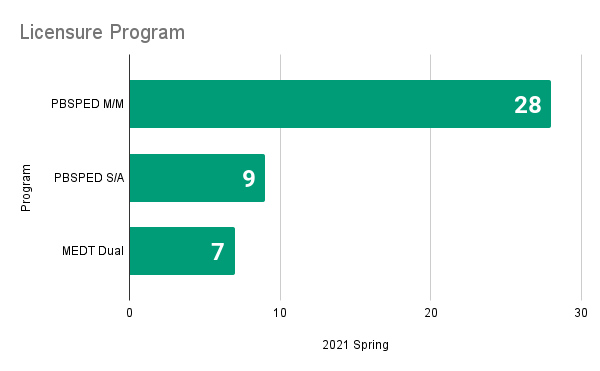
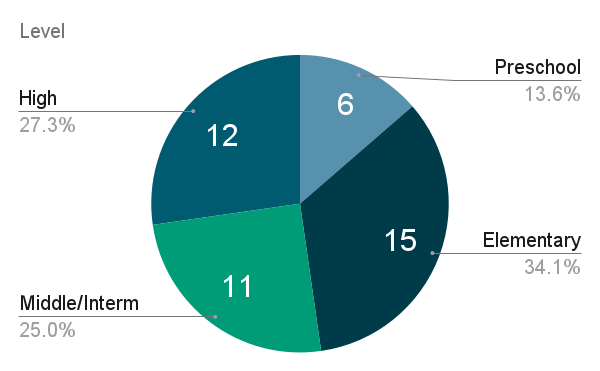
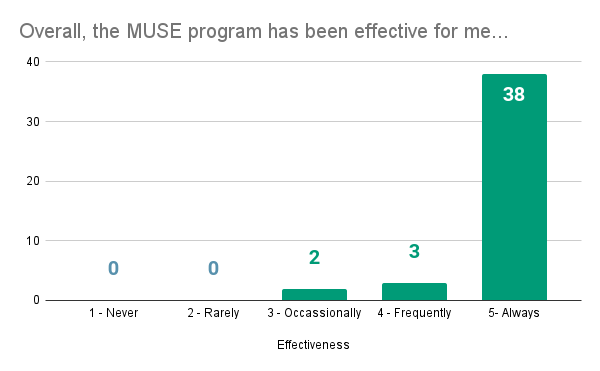
Out of the 44 respondents, 16% were enrolled in the MEdT Dual Secondary & Special Education program, 20% were enrolled in the PBSPED Severe/Autism program, and 64% were enrolled in the PBSPED Mild/Moderate program.
Out of the 44 respondents, 14% were hired in preschool, 34% in elementary, 25% in middle/intermediate, and 27% in high school settings.
Given a likert-type scale and the statement “Overall, the MUSE program has been very effective for me”, 88% of respondents chose “Always”, 7% chose “Frequently”, and 5% chose “Occassionally”. No candidates chose “Rarely” or “Never”.
Alumni Feedback
Rachel Bell, PBSPED Mild/Moderate Graduate, 2015-2017 Cohort
#1 Most Valued Programmatic Support
An anonymous survey was distributed to all 2016 and 2017 graduates of the Post baccalaureate Certificate in Special Education to analyze which program supports they found most valuable.
Although alumni had found almost all supports valuable, one of the most significant findings of this study was the overwhelming support for the MUSE mentoring program. When asked to rank order all nine types of identified programmatic supports, a majority of alumni listed MUSE as their #1 valued support.
Anonymous feedback regarding the value of MUSE support include:
“I was an Emergency Hire from my first year…therefore, there were things I needed to know and learn very quickly, things I needed to know before the program was ready to teach me, and for that I needed to tap into my MUSE mentor.”
“The MUSE program provided the much needed support a beginning teacher needs. My mentor helped me to contextualize so much random information, distinguish between urgent and important, and navigate many logistical issues. In short, my MUSE mentor helped me navigate a whole new world.”
About MUSE

Founded in 2003 as a partnership among the University of Hawai‘i at Mānoa, the Hawai‘i State Department of Education, and the New Teacher Center at the University of California Santa Cruz, the MUSE program is a vital component of the teacher preparation programs offered through the Department of Special Education.

